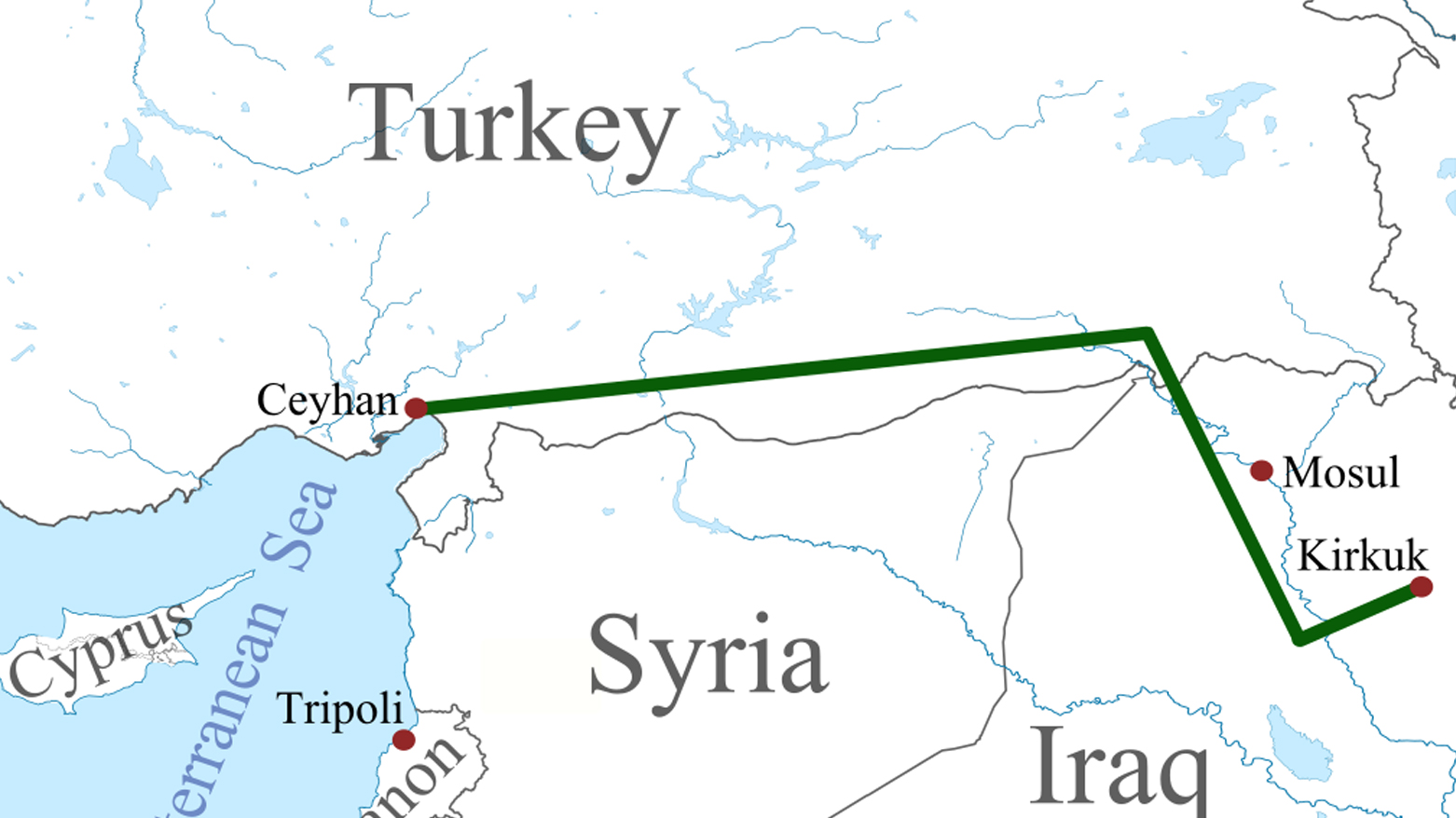Baghdad Moves Closer to Resuming Kurdistan Oil Exports After 30-Month Halt
Iraq moves closer to resuming Kurdistan oil exports via Turkey after 30-month halt. A draft deal would allow 230,000 bpd through the Kirkuk-Ceyhan pipeline. Separately, US pressure blocked Iraq’s Turkmen gas deal via Iran.

Erbil (Kurdistan24) – Iraq has inched toward a breakthrough agreement to resume pipeline oil exports from the Kurdistan Region through Türkiye, sources familiar with the negotiations confirmed, in what could deliver over 230,000 barrels per day of fresh crude to global markets at a time when Baghdad faces mounting energy shortages and strained relations with both Washington and Tehran.
Officials involved in the talks told Reuters that Iraq’s federal cabinet has given preliminary approval to a draft plan that would allow exports through the Kirkuk-Ceyhan pipeline to restart, after an 30-month suspension triggered by an international arbitration ruling against Türkiye. The decision, if finalized, would mark the most significant progress yet in efforts to reconcile Baghdad, the Kurdistan Regional Government (KRG) in Erbil, and international oil companies whose operations have been stalled since March 2023.
The arbitration case ordered Ankara to pay $1.5 billion in damages for facilitating unauthorized Kurdish exports between 2014 and 2018. While Türkiye has appealed the ruling, it has signaled its readiness to reopen the pipeline, leaving internal disputes between Iraq’s central government, the KRG, and producers as the primary obstacle.
An executive from one of the international companies involved said, “Discussions have intensified and we are closer to a tripartite agreement than we have ever been, as all sides are showing flexibility.” Industry representatives, grouped under APIKUR, which includes Genel Energy, DNO, and Gulf Keystone, have declined public comment, citing ongoing negotiations.
Under the provisional framework, the KRG would commit to supplying at least 230,000 barrels per day to Iraq’s state marketer SOMO, while retaining an additional 50,000 barrels for local consumption. An independent trader would handle sales from Türkiye’s Ceyhan port using SOMO’s official pricing. Revenue from each barrel would see $16 placed into an escrow account for proportional distribution to producers, with the balance directed to SOMO.
However, the plan remains silent on how or when companies will recover approximately $1 billion in arrears accrued between September 2022 and March 2023. Luke Clements, CFO of Genel Energy, said last week at a conference in Oslo that while “significant progress has been made” in drafting agreements, the process “still needs to get over the line.”
The potential breakthrough comes as Iraq grapples with deepening energy shortages. Baghdad’s attempt to secure Turkmen gas routed through Iran collapsed under U.S. pressure, with Washington refusing to authorize a swap deal that risked breaching sanctions on Tehran. The proposed arrangement would have supplied Iraq with more than 5 billion cubic meters of Turkmen gas annually, with Iran taking a share of the flow for its own use.
Despite months of lobbying, the Trump administration blocked the plan, leaving Baghdad exposed during peak summer demand when electricity needs surge to over 45 million cubic meters per day. The loss of Iranian gas supplies since the end of U.S. sanctions waivers has already cut around 3,000 megawatts of power generation—enough to impact more than 2.5 million homes.
This failure has compounded Iraq’s reliance on Iranian gas, which still accounts for nearly one-third of the country’s power generation. Although OPEC’s second-largest producer, Iraq continues to flare much of its associated gas due to decades of under-investment and limited infrastructure, producing only 11 billion cubic meters for domestic use in 2023.
To diversify, Baghdad has turned to liquefied natural gas imports, with plans to lease a floating LNG terminal to bring in supplies from Qatar and Oman. The government has also accelerated deals with global oil majors. France’s TotalEnergies recently advanced the second development phase at the Ratawi field under a $27 billion plan, while BP has secured approval for the redevelopment of the giant Kirkuk oilfields.
Iraq exports around 3.4 million barrels per day from its southern ports, but officials see reopening the northern pipeline as critical for both domestic energy security and revenue generation. Beyond plugging fiscal gaps, resuming exports from Kurdistan would also help restore confidence among international investors after years of legal disputes and suspended payments.
The emerging deal highlights Baghdad’s delicate balancing act between Washington, which has tightened sanctions on Iran, and Ankara, which remains central to Iraq’s export infrastructure. Failure to restart northern flows has exacerbated the country’s economic and political vulnerability, with growing public anger over chronic blackouts and unemployment.
For Baghdad and Erbil alike, securing agreement with oil companies to resume exports would represent not only a step toward stabilizing energy markets but also a critical move to address Iraq’s long-standing power crisis. Whether this preliminary breakthrough holds will depend on whether political will can overcome lingering mistrust and financial disputes.